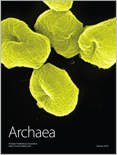
ARCHAEA-AN INTERNATIONAL MICROBIOLOGICAL JOURNAL
metrics 2024
Championing Open Access to Microbial Insights
Introduction
ARCHAEA - AN INTERNATIONAL MICROBIOLOGICAL JOURNAL, published by Hindawi Ltd, stands as a pivotal platform for scholars in the realm of microbiology and related fields. With an ISSN of 1472-3646 and an E-ISSN of 1472-3654, this Open Access journal has been committed to disseminating high-quality research since its inception in 2002. Based in the United States, and now operating globally from its London office, ARCHAEA features a diverse scope encompassing ecology, evolution, behavior, and systematics. Recognized for its scholarly contributions, it holds noteworthy quartile rankings as of 2023, including Q2 in Ecology and Q3 in Microbiology, highlighting its impact in these scientific communities. The journal's Scopus rankings further emphasize its prestige, reflecting a commitment to advancing knowledge in microbiology. By providing open access to its publications, ARCHAEA ensures that vital research is readily available to researchers, professionals, and students worldwide, fostering collaboration and innovation in the study of archaeal life and its ecological significance.
Metrics 2024
 0.49
0.49 2.30
2.30 3.20
3.20 48
48Metrics History
Rank 2024
Scopus
IF (Web Of Science)
JCI (Web Of Science)
Quartile History
Similar Journals
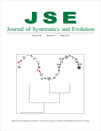
Journal of Systematics and Evolution
Advancing the Frontiers of Ecology and EvolutionThe Journal of Systematics and Evolution, published by WILEY, is a premier academic journal dedicated to advancing the fields of Ecology, Evolution, Behavior, and Systematics and Plant Science. With a distinguished Q1 ranking in both of these critical categories in 2023, it stands at the forefront of scientific research, placing it in the top quartile among its peers. Featuring both an ISSN of 1674-4918 and an E-ISSN of 1759-6831, the journal has been converging innovative research since its inception in 2008. The journal caters to a global audience of researchers, professionals, and students, providing a platform for disseminating significant findings and fostering academic dialogue. Its impressive Scopus rankings further affirm its impact, coming in at Rank #62/721 in Ecology and Rank #48/516 in Plant Science, highlighting its relevance and influence in these vibrant fields. As an open-access journal, it ensures that groundbreaking research is accessible to all, thus enhancing collaborative opportunities within the scientific community.

Science of Nature
Bridging Research and Nature's Complexities.Science of Nature, a prestigious journal published by SPRINGER HEIDELBERG, stands at the forefront of multidisciplinary research, encompassing key areas within Ecology, Evolution, Behavior, and Systematics. With an impressive history tracing back to 1913 and a continued focus on innovative scientific inquiry, this journal has earned a commendable Q2 ranking in both Ecology and Medicine as of 2023. The journal is accessible through its Open Access options, promoting wider dissemination of knowledge and research breakthroughs. As a vital resource for researchers, professionals, and students alike, Science of Nature not only reflects the dynamic nature of biological sciences but also contributes significantly to advancing our understanding of complex ecological relationships and medical developments. Recognized by its ISSN 0028-1042 and E-ISSN 1432-1904, this journal is a must-read for those seeking to stay updated with the latest findings and discussions in the field.

International Journal of Biological Sciences
Exploring the Depths of Biological KnowledgeInternational Journal of Biological Sciences (ISSN: 1449-2288, E-ISSN: 1449-2288) is a premier open-access journal published by IVYSPRING INTERNATIONAL PUBLISHING since 2005, located in Australia. With a commitment to advancing knowledge in the life sciences, this journal covers a wide spectrum of disciplines, including Applied Microbiology and Biotechnology, Cell Biology, Developmental Biology, Ecology, Evolution, Behavior and Systematics, and Molecular Biology, earning a distinguished Q1 ranking in these fields as of 2023. It stands out with exceptional Scopus rankings, placing in the top ranks across multiple categories, such as the 98th percentile in Ecology, Evolution, Behavior and Systematics and the 94th percentile in Applied Microbiology and Biotechnology. The journal fosters an open access philosophy, ensuring that research findings are readily available to the scientific community and the public, and invites original research articles, reviews, and commentaries. With its mission to disseminate high-quality research, the International Journal of Biological Sciences serves as an essential resource for researchers, professionals, and students seeking to deepen their understanding and drive innovation in biological sciences.
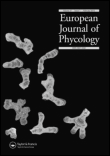
EUROPEAN JOURNAL OF PHYCOLOGY
Connecting Science and Sustainability in Aquatic EnvironmentsThe EUROPEAN JOURNAL OF PHYCOLOGY, published by TAYLOR & FRANCIS LTD, stands as a prominent platform in the fields of Aquatic Science and Plant Science, reflecting its significant contribution to the understanding of algae and freshwater ecosystems. With an ISSN of 0967-0262 and an E-ISSN of 1469-4433, this journal has been disseminating valuable research since its inception in 1993, and it continues to play a pivotal role in advancing scientific knowledge through to 2024. Recognized in the Q2 category for both Aquatic and Plant Sciences in the 2023 rankings, it holds a commendable position in Scopus, being ranked #125 out of 516 and #63 out of 247, respectively. The journal is particularly valuable for researchers, professionals, and students seeking to explore innovative studies and methodologies in phycology and related disciplines. Although it does not currently offer open access, it provides an essential resource for those looking to deepen their understanding of algae's ecological roles and applications.

RUSSIAN JOURNAL OF THERIOLOGY
Bridging Disciplines in Zoology and Plant ScienceRUSSIAN JOURNAL OF THERIOLOGY is a prominent academic journal published by KMK SCIENTIFIC PRESS LTD in collaboration with the esteemed Moscow State University. As a dedicated platform for researchers in the fields of Animal Science and Zoology, Ecology, Evolution, Behavior and Systematics, and Plant Science, this journal strives to advance our understanding of terrestrial ecosystems and their inhabitants. Although it currently holds a Q4 ranking and ranks within the lower percentiles of its respective categories, the journal's consistent publishing output since 2011 showcases a commitment to facilitating scientific discourse and collaboration. Addressed to a diverse audience of researchers, professionals, and students, RUSSIAN JOURNAL OF THERIOLOGY serves as an essential resource for disseminating valuable insights and fostering future advancements in the biological sciences.
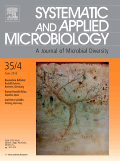
SYSTEMATIC AND APPLIED MICROBIOLOGY
Exploring Innovations in Applied MicrobiologySYSTEMATIC AND APPLIED MICROBIOLOGY, with ISSN 0723-2020 and E-ISSN 1618-0984, is a prestigious journal published by Elsevier GmbH, located in Munich, Germany. Established in 1983, this journal provides a critical platform for the dissemination of high-quality research in the fields of applied microbiology, ecology, and biotechnology. With a commendable impact reflected in its 2023 Q1 ranking in Applied Microbiology and Biotechnology, and Ecology, Evolution, Behavior and Systematics, along with a Q2 ranking in Microbiology, SYSTEMATIC AND APPLIED MICROBIOLOGY maintains a high standard of scholarly excellence. As part of the Scopus database, it ranks prominently—79th out of 721 in Ecology, and within the top quartiles for its relevant fields, potent in disseminating implications for researchers, professionals, and students alike. Although it does not offer open access, the journal is dedicated to advancing knowledge and innovation in microbiological research, making it an essential resource for anyone in the field seeking to stay abreast of current findings and applications.

MICROBIOLOGY
Transforming Microbiological Insights into Real-World SolutionsMICROBIOLOGY (ISSN: 0026-2617, E-ISSN: 1608-3237), published by MAIK NAUKA/INTERPERIODICA/SPRINGER, is a pivotal journal in the field of microbiological research, operating from the vibrant hub of New York, United States. With a focus on the intricate relationships and functionalities of microorganisms, MICROBIOLOGY serves as an essential resource for professionals and researchers dedicated to advancing the knowledge of applied microbiology and biotechnology. As of 2023, it holds a competitive Q3 and Q4 category ranking in Applied Microbiology and Biotechnology and Microbiology, respectively, reflecting its commitment to high-quality and impactful research. Although currently not open access, the journal extends comprehensive insights into critical topics that span environmental microbiology, clinical applications, and biotechnology advancements, making it a vital platform for disseminating innovative findings in this ever-evolving discipline. Researchers and students alike will find MICROBIOLOGY to be an invaluable addition to their academic and professional repertoire.
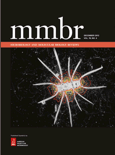
MICROBIOLOGY AND MOLECULAR BIOLOGY REVIEWS
Fostering Knowledge in the World of Microbiology and Molecular BiologyMICROBIOLOGY AND MOLECULAR BIOLOGY REVIEWS, published by the American Society for Microbiology, is a premier journal dedicated to advancing the fields of microbiology and molecular biology. With an impressive impact factor reflective of its Q1 ranking in categories such as Immunology, Infectious Diseases, and Molecular Biology, this journal consistently showcases high-quality, peer-reviewed articles that contribute to the current understanding of microbial life and molecular mechanisms. Operating since 1997, the journal aims to bridge the gap between microbiological methods and molecular biology applications, making it an essential resource for researchers, professionals, and students alike. Readers can access content through various platforms, ensuring that the latest findings are readily available to the scientific community. With its esteemed reputation, MICROBIOLOGY AND MOLECULAR BIOLOGY REVIEWS remains a leading voice in the exploration of the life sciences, catering to a broad audience deeply invested in unraveling the complexities of microbial and molecular systems.
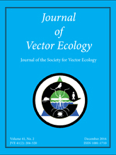
JOURNAL OF VECTOR ECOLOGY
Exploring the Intersections of Ecology and Public HealthJOURNAL OF VECTOR ECOLOGY, published by SOC VECTOR ECOLOGY, serves as a pivotal platform for the dissemination of research in the interdisciplinary fields of ecology, evolution, behavior, and systematics. Established in 1996 and operating from the United States, this esteemed journal boasts an impressive Q2 ranking in Ecology as of 2023, showcasing its significant contribution to the scientific understanding of vector ecology and its implications on public health and environmental management. The journal is indexed in Scopus, ranking #341 out of 721 in Agricultural and Biological Sciences focusing on Ecology, Evolution, Behavior and Systematics and #222 out of 461 in Environmental Science, highlighting its relevance and impact within these domains. Although it does not currently offer open access options, the JOURNAL OF VECTOR ECOLOGY remains committed to advancing knowledge and fostering collaboration among researchers, professionals, and students dedicated to vector analysis and control strategies.
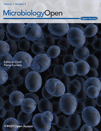
MicrobiologyOpen
Advancing microbiological research for a global audience.MicrobiologyOpen is a prestigious, open access journal published by WILEY, dedicated to advancing the field of microbiology. Since its inception in 2012, this journal has firmly established itself as a significant platform for researchers, professionals, and students alike, facilitating the dissemination of high-quality research findings across a wide range of microbiological disciplines. With an impressive impact factor and a ranking in the 76th percentile of Scopus for immunology and microbiology, MicrobiologyOpen offers a robust forum for innovative studies, reviews, and compelling insights that push the boundaries of scientific understanding. The journal's commitment to open access ensures that groundbreaking research is freely available to the global community, fostering collaboration and knowledge-sharing. As it continues to evolve until 2024, MicrobiologyOpen remains pivotal for anyone looking to stay at the forefront of microbiological research.